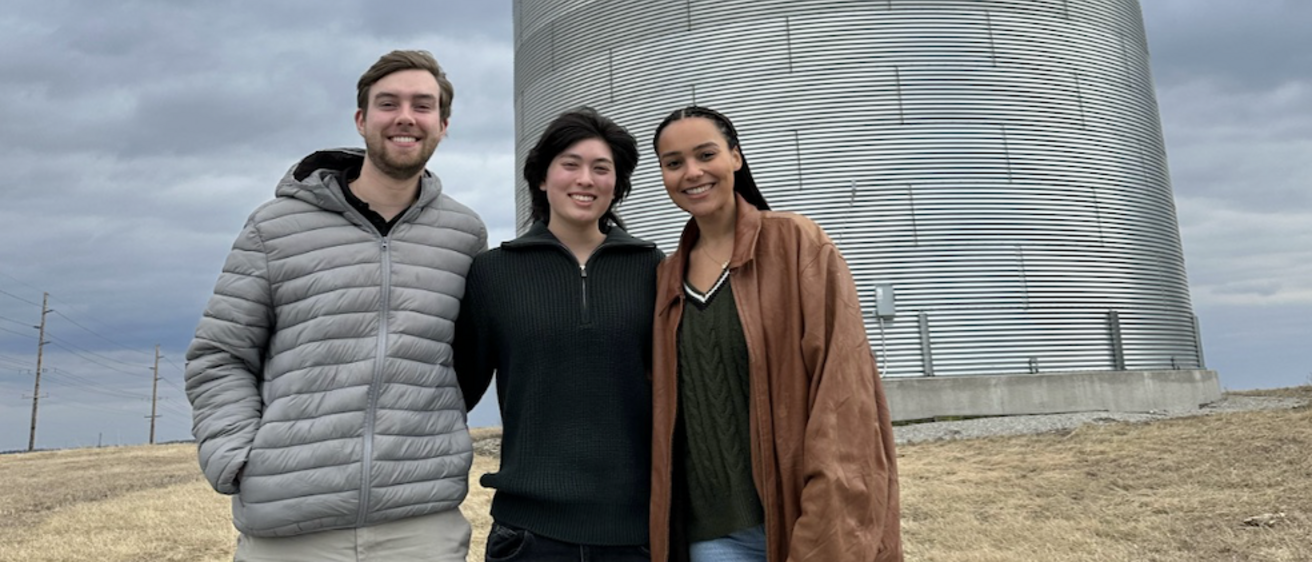In 2023, Iowa Governor Kim Reynolds signed a new law into effect that changed state rules for child labor. It increased the number of hours that 14- and 15-year-olds can work and expanded their potential work activities. It also increased exceptions to the ban on potentially dangerous work for 16- and 17-year-olds.
Parsing the Differences
Parts of the new law are less restrictive than federal laws, while other parts are looser. Employers and prospective employees alike are confused as to their rights.
As part of the 2024-25 IISC partnership with Pathfinders RC&D, the South Central Work Force Development Board (SCWFD) asked a team of three University of Iowa College of Law students to provide clarity. The students, who were enrolled in the Community Empowerment Law Project, one of several UI legal services that offers free services, examined state and federal laws to discern where they differed.
"Generally, Iowa’s laws became looser,” explained Jay Moran, one of the team members. “But there are other parts of the Iowa law, like wages, that are stricter. Usually whatever is the stricter law is the one that applies. You really have to go through and parse it all out.”
Without legal training, this isn’t an easy task. “The language of the laws in the Iowa code is quite vague," said team member Anthony Mundt. "They’re also not all published online, so locating the information is challenging.”
Businesses Trying to Do the Right Thing
Many small businesses have been scared out of hiring teens since the law changed. In June 2024, a locally owned soul food restaurant in North Liberty, IA, received a $65,000 fine from the U.S. Department of Labor. Although they were adhering to Iowa's law, they were in violation of federal laws.
The point of contention was a program they’d started to help teens learn core workplace skills while earning money for college. They saw it as a public service as much as a way to get employee help. The law team interviewed the owners, and also spoke with young people, guidance counselors, and business owners.
They gained a lot of empathy for employers and employees a like. The former group wants to provide young people with opportunities that might encourage them to stay in the area. For the latter group, a job is a necessity.
"Many of the young people I interviewed need to help support their family, or want to go straight into the workforce," said Moran. In other words, whether it's a paycheck or on-the-job training, employment is a must.
Legal Gray Area
When Pathfinders RC&D began its partnership with IISC, it included SCWFD in planning sessions. As the group brainstormed potential legal projects, Teri Bockting, SCWFD's director, mentioned that many businesses were confused by the new law and “understandably concerned about doing the right thing.”
An example of the legal gray area came from the owner of a chocolate business. “She has a conveyor belt as part of her operation,” explained Makayla Bruno-Smith, the third member of the legal team. "It could technically be considered a factory based on some of the standards, but not by others.”
There are many other examples of competing definitions. "Youth can’t go into meat coolers,for example," says Bruno-Smith, "but what happens if your meat and other products, like produce or dairy, are in the same cooler? It's really not clear."
In May, the group provided Bockting and the SCWFD Board with two deliverables: a brochure outlining employees' rights and a website about youth employment laws, best practices for finding (and keeping) a job, how to file taxes, and tools for self-advocacy. The website is aimed at employers and will be distributed through chambers of commerce and other business-centered organizations. The brochure is intended for young people, with colors and tone aimed at making a dry topic more hospitable.
While the team created the deliverables for SCWFD, the materials are relevant to all Iowans involved in youth development. Mundt, who grew up in a rural Iowa community, said he hopes they'll get shared widely: "We need young people to stay in these areas."
